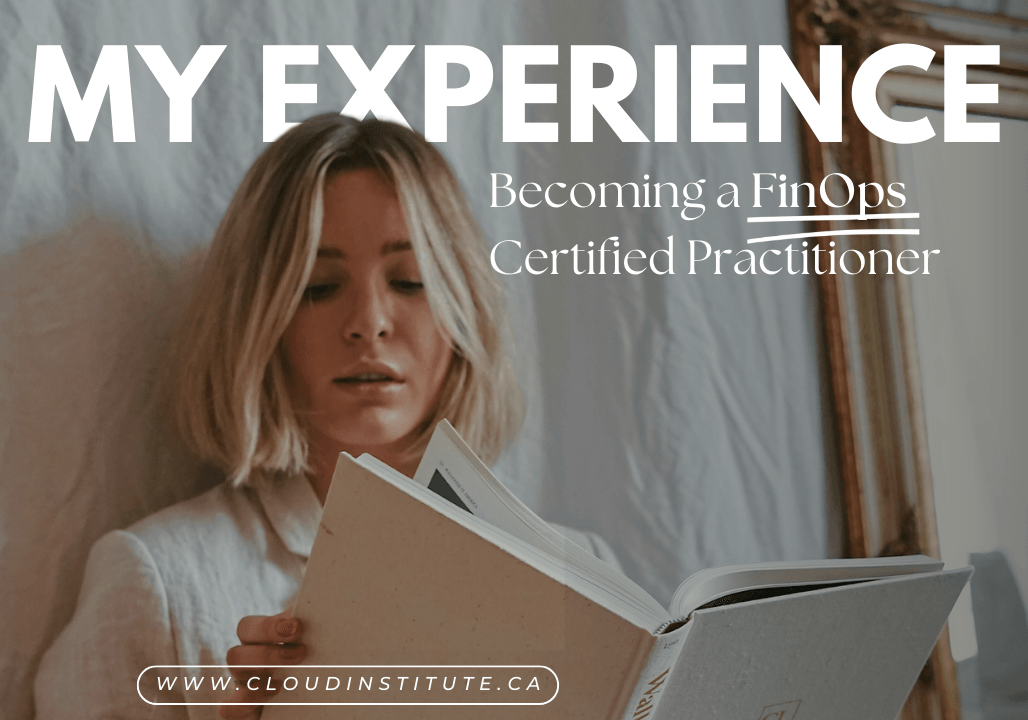Becoming a FinOps Certified Practitioner (FOCP)

My experience becoming a FinOps Certified Practitioner (FOCP)
Recently, I had the opportunity to sit for the official FinOps Certified Practitioner exam, and now that the experience is still fresh in my mind, I would like to share my thoughts and insights on obtaining this certification.
First, let me provide a bit of background about myself. I am a software developer who primarily focuses on cloud projects. While I do not have extensive experience in the financial aspect of business, I have always had a keen curiosity for areas beyond my direct line of work. In the realm of cloud computing, certifications have become a well-established means of demonstrating proficiency. They serve as evidence that one is familiar with a specific subject matter, although they do not necessarily indicate mastery. Personally, I find certifications to be valuable as they provide a tangible goal and a tangible representation of the efforts put forth. So, when I stumbled upon the FinOps Certified Practitioner certification, I was immediately intrigued.
When embarking on any endeavor, it is essential to understand the "why" behind it. For me, one aspect of cloud computing that has always fascinated me is the additional dimension of cost, which complements the usual technical considerations such as compute, memory, and storage. As a solution architect, I strive to find the optimal balance among all these dimensions to achieve the best outcome. What makes this balancing act even more fascinating is the cloud's flexibility and speed, which amplify the impact of these dimensions. Thus, the continuous assessment and optimization of costs become crucial.
The exam
The exam itself is relatively straightforward if you have diligently covered all the study materials. It is a 60-minute exam, but you have ample time to complete it. In my case, it took me around 35 minutes, and I did not feel rushed in any way. The exam is conducted remotely and does not require proctoring, meaning you can complete it within your own browser without having to install any special surveillance software or have someone remotely monitor you. If you are familiar with the AWS certification space, the FinOps exam is more akin to an accreditation rather than a traditional certification, although its difficulty is comparable to the AWS Cloud Practitioner certification. The exam consists of 50 multiple-choice questions that do not involve extensive reading.
One positive aspect of the FinOps certification is that you are given three attempts right from the start. This allows you to try the exam as soon as you feel confident in your knowledge and determine if you have reached the required level of proficiency.
I enrolled into the Mastering FinOps course from Cloud Institute Canada, this course was enough for me. There was questions at the end of each paragraphs and the mock exam was exactly what I needed.
I was successful on my first attempt, achieving a score of 84% (the passing score is 75%). This eliminated the need for me to go back to the drawing board or adjust my study plan.

Final thoughts
- Overall, I found the experience of pursuing the FinOps Certified Practitioner certification to be both enjoyable and enlightening.
- The Mastering FinOps course provided me with a solid introduction to the subject matter and equipped me with practical tools that I can apply in my day-to-day job.
- In the end, the exam turned out to be easier than I had initially anticipated. Perhaps the seemingly high price tag had subconsciously made me perceive it as more challenging than it actually was. It is often the case that when we expect things to be difficult, they turn out to be easier than anticipated. However, this is not to say that the exam is a walk in the park. It still requires dedicated study and a serious approach.
Would you recommend?
Would I recommend pursuing the FOCP certification? Well, it depends on your goals and circumstances. Here are a few scenarios to consider:
- If your aim is to secure a job in the field of financial cloud management, then the cost of the certification and the Mastering FinOps course is likely a small investment compared to the potential career opportunities it can unlock. In this case, it is well worth your time and money.
- If you are simply interested in FinOps and wish to gain knowledge without any specific career objectives, then I would likely advise against pursuing the certification, just go for the Mastering FinOps course. You will get good information on the subject and you could refer to it when needed.
- If you have the opportunity to have the exam fees covered by an employer or other means, then investing in Mastering FinOps course will be beneficial to you.
As for me, I fall into the last category, and I am satisfied with both the journey and the destination. The Mastering FinOps course has provided me with practical tools that I can apply in my daily work and has deepened my appreciation for the subject of FinOps and Cloud optimization.
Subscribe now.
Unlock a world of captivating stories delivered directly to your inbox before anyone else by subscribing to our newsletter!
Cloud Insitute Canada • Privacy policy • Terms of service



